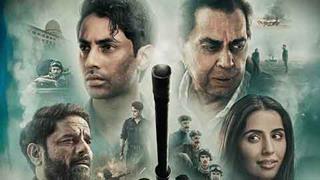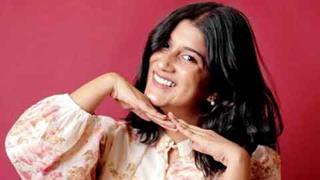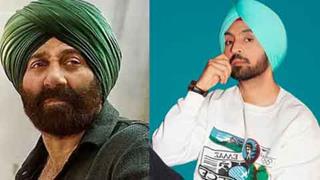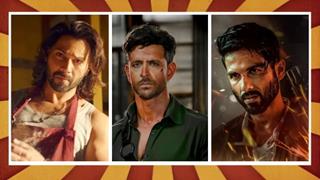There is one simple reason behind the recent surge in popularity of Bollywood in the West, says legendary Indian filmmaker Yash Chopra. "People who see our films feel happy," he said.
Indeed, Bollywood's pulling power of romance, costumes, music, comedy and stories is helping to propel Hindi language movies beyond the Indian diaspora and into mainstream cinemas around the globe as well as reaching the world of marketing and advertising.
"Bollywood is doing damn good business overseas," said Chopra, who is in Berlin as a member of the jury for the German capital's 56th international film festival which runs until Feb 19.
His invitation to join the jury is a reflection both of his reputation as one of most prominent members of the Indian film industry as well as the worldwide interest in Bollywood movies.
In fashion, music clothes and food - "India is happening" said Chopra, whose filmmaking career spans almost half a century with love and romance the central themes of the more than 30 films he has directed and produced over the years.
Born in Lahore (now Pakistan) in 1932, he initially worked as an assistant director to moviemaker I.S. Johar and on films made by his brother B.R. Chopra.
He made his directorial debut in 1959 with "Dhool ka Phool," a story about unwed motherhood, illegitimacy and hopes for communal harmony.
Just over a decade later he established his own company, Yash Raj Films before rapidly becoming one the most powerful moguls in Hindi films pumping out a series of smash box office hits.
"Today audiences are ready to accept anything different," he said. He quickly added: "You have to give them a package of full entertainment."
As India changes rapidly, Bollywood has been questioning its direction with Chopra saying that movies using what Indian cinema calls the old formula (comprising a few songs, a couple of comedy routines and several action scenes) were starting to lose their audience appeal.
"Films made using the old formula have been starting to flop", he said.
"We have to present new subjects," said Chopra with Bollywood beginning to tackle questions like sexuality and political issues including corruption as well as international standard action films.
People who want to make successful films have to change because Bollywood is changing, he said.
As it happens, Chopra is one of the few members of the older generation of filmmakers who have moved with the times, shooting his movies against sweeping backdrops all around the word.
His most recent film "Veer-Zaara" was a love story between an Indian pilot and Pakistani woman set against the backdrop of the tensions between the two countries.
Chopra's 1995 film "Dilwale Dulhaniya Le Jayenge" for the first time portrayed Indians living abroad and was one of the most commercially successful Indian films ever made.
His son, Aditya Chopra, has joined him in the film making business. A second son, Uday Chopra, is an actor.
Bollywood might make more films than anywhere in the world but it is not averse to tapping into movie trends from other nations and is currently picking up on the culture of computer generated imagery that has emerged in Hollywood.
"Global barriers are been broken down every day in every field," he said. "We learn from everything. Every movie I see I learn something from it."
At the same time, Chopra said Bollywood has to change to keep up with a new generation of cinemagoers in India.
"They are exploring the world of cinema through DVDs and alike as well movies from other nations are coming to India."
At the same time a new generation of filmmakers is emerging in India who are passionate about their industry. In addition, they are making fewer movies than the previous generation of Bollywood directors and producers.
Influenced by the West, they are also starting to move away from films with songs and big dance routines.
A total of four Indian films are competing in this year's Berlinale, including "John and Jane" by young Bombay-born director Ashim Ahluwalia.
His film tells the story on a group of young Indians working in a call centre in the industrial wasteland on the outskirts of a big city and answering calls from the US.
But the festival also includes Bollywood blockbuster "Parineeta".
Whatever the changes now under way in Indian cinema, Chopra remains convinced that the key to a movie's success is its story.
"The most important thing for making a film is the story or the script," said Chopra. "I think that is the basic foundation of any film."
Moreover, it seems that it is not about to move too far away from its long-established path to box office success. Chopra said: "People want to see romantic movies based around one-family drama."
People want romantic movies: Yash Chopra
Wednesday, February 15, 2006 10:21 IST


















